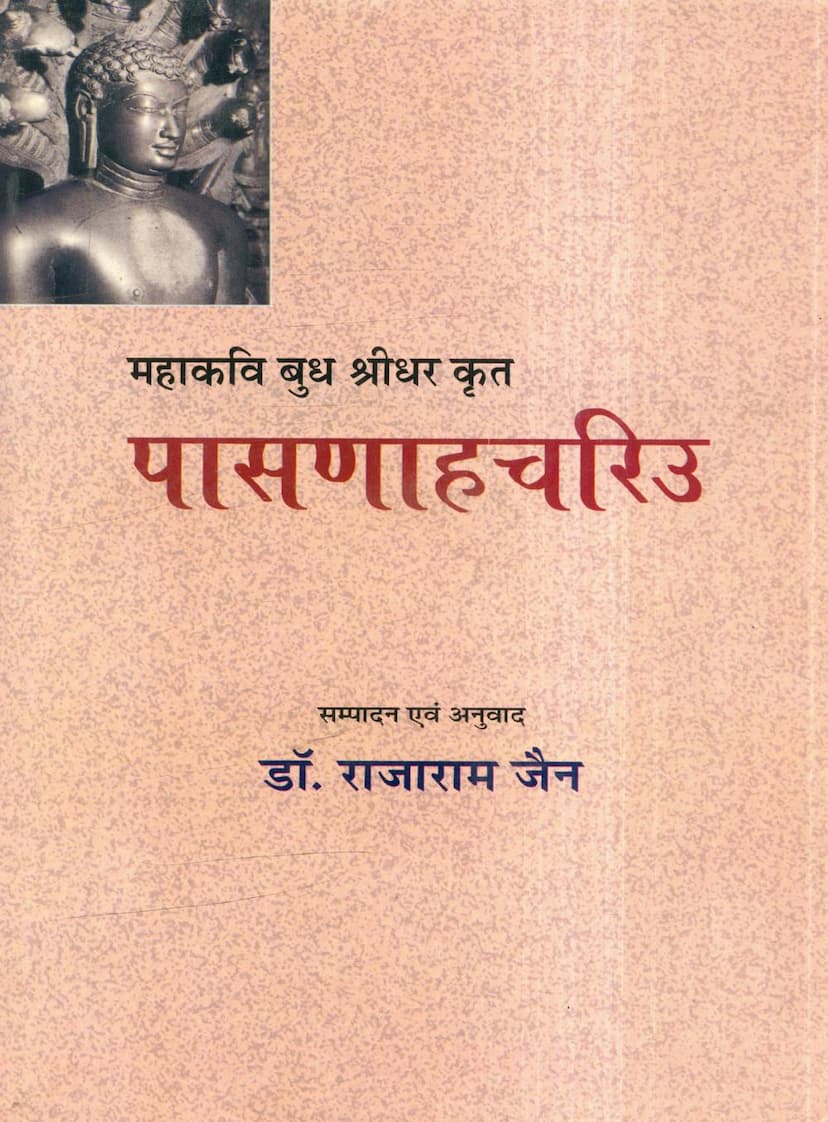Pasnah Chariu
Added to library: September 2, 2025

Summary
The Pasnah Chariu (also known as Pārśvanāthacarita) is a significant mythological epic poem composed by Mahākavi Budha Śridhara in the Apabhramśa language during the 13th century. This work is considered an exceptional creation within the Apabhramśa literary tradition and focuses on the life story of Tīrthankara Pārśvanātha, one of the most important figures in Jainism.
Key Aspects of the Pasnah Chariu as summarized from the provided text:
-
Narrative Focus: The poem narrates the life of Tīrthankara Pārśvanātha across his nine previous births (Bhavāntaras). It portrays a grand life where the accumulated sanskaras (impressions) from numerous lifetimes contribute to his eventual Tīrthankarahood. These past lives are depicted as mysterious and astonishing, with the poet's style effectively presenting the vast canvas of the Tīrthankara's life. The narrative flow is well-organized and, from an epic perspective, complete.
-
Author's Insight: Budha Śridhara was not merely a poet but also a keen observer and scholar of medieval Śramaņa culture and Indian history, particularly the social and political landscape of the Tomara dynasty ruling in Delhi during his time.
-
Historical and Mythological Blend: Although the subject matter is mythological (the lives of a Tīrthankara), Budha Śridhara skillfully uses allegory to weave contemporary historical facts into the epic's broad framework. This technique lends the work a historical dimension, transforming it into a "historical mythological poetic composition."
-
Editor/Translator: The critically acclaimed orientalist, Dr. Rajaram Jain, has meticulously edited and translated this work. He has further enhanced its value for curious readers through a comprehensive and multifaceted introduction.
-
Publisher and Series: The book is published by Bharatiya Jnanpith as part of the Moortidevi Jain Granthamala, specifically under its Apabhramsha Grantha series (No. 24). The first edition was released in 2006.
-
Content and Scope: The poem goes beyond just the religious narrative. Budha Śridhara, described as an "ocean of knowledge," integrates various aspects of knowledge and science into the story. This includes religion, philosophy, spirituality, ethics, principles, geography, astronomy, history, culture, Vedic scriptures, grammar, dramaturgy, folk culture, art, Ayurveda, warfare, strategy, and politics. He demonstrates an exceptional ability in using poetic devices like similes, metaphors, alliteration, and hyperbole, and in depicting various rasas (emotions) like shringar (love), bibhatsa (disgust), raudra (anger), culminating in shanta rasa (peace).
-
Historical Context: The poem's narrative, while mythological, is grounded in historical realities. For instance, the description of the war between Prince Pārśva and the Yavana King is presented as if the poet himself was a witness to the fierce battle between Emperor Prithviraj Chauhan and Muhammad Ghori. The poet also provides a vivid, firsthand account of 13th-century Delhi, describing its beauty, disciplined populace, and administrative system, so much so that he eventually decided to reside there.
-
Editorial Contribution: Bharatiya Jnanpith expresses its pleasure in having the opportunity to publish another great work from the Apabhramśa literary heritage.
In essence, the Pasnah Chariu is a profound and multifaceted epic that uses the life of Tīrthankara Pārśvanātha as a vehicle to explore not only spiritual and philosophical themes but also the historical, cultural, and societal intricacies of medieval India, particularly Delhi, all rendered through the masterful poetic artistry of Budha Śridhara. Dr. Rajaram Jain's dedicated editing and translation make this ancient masterpiece accessible to modern readers.